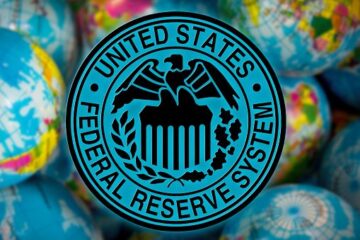Later this month, personal finance author and entrepreneur Bernadette Joy will celebrate her 40th birthday in a unique way: She will retire. At least for a little while.
Joy, 39, plans to “practice retirement ” and has been working toward her savings goal for more than a decade. Now, she is debt free and has a net worth of $1.9 million, so she’s ready to see if her careful financial planning will allow her to retire.
💸💰Don’t miss the move: Subscribe to TheStreet’s free daily newsletter💸
So, how did Joy get here at such a young age? Not by accident. And not because of an inheritance. Her experience in paying down debt and planning for retirement led her to write CRUSH Your Money Goals (Simon & Schuster, 2024). She also hosts a podcast of the same name.
In fact, Joy has been planning for her retirement for several years. “My dad immigrated to the U.S., worked his whole life and died during COVID-19,” Joy says. “He didn’t work this hard for me to end up working just as hard as [he did] into my 70s.”
Joy is not sure she will be retired forever, but she looks forward to seeing if it takes. “I’m going to find out who I am outside of work,” Joy said in an exclusive interview with TheStreet. At the top of her list for retirement hobbies: swimming lessons.
Joy shares some of her fundamental retirement-planning advice below.
Bernadette Joy is an author and podcaster who shares the personal finance advice that helped her plan her own retirement at age 40.
Bernadette Joy/TheStreet
Pay off student loan debt as fast as possible
“Debt is meant to be a short-term solution, not a long-term lifestyle,” Joy says.
Of course, sometimes debt is a means to an end, such as student loan debt. In 2014, Joy took out $72,000 in loans to pay for her MBA. “At the time I didn’t really know what I was getting myself into until I realized that I alone was responsible for paying it all off,” she says.
Related: What’s next for student loan forgiveness after Trump win
The debt was distressing but once Joy used a student-loan calculator and realized she was accruing $7.92 a day in interest she was extra motivated to erase that debt asap.
“I resolved to pay off my loans in two years instead of ten years, and twenty-two months later, I made my final payment,” she says.
Joy’s student loan repayment journey became a podcast and changed the trajectory of her career.
Prioritize Roth IRAs and traditional IRAS
Joy says people often ask her if they should pay off debt or invest. “I’m a broken record, but I will always stand by paying off debt first,” she says.
Once you’re ready to start your retirement savings, make sure you are setting up tax-advanced accounts, including 401(k), 401(b), or IRAs. “You don’t need any other investment accounts until you have absolutely exhausted the limits of these accounts,” Joy says.
The two types of IRAs Joy thinks everyone needs to know about are “Roth” and “traditional.” There is one key difference between them, she explains: when you get the tax benefit.
With a traditional IRA you save on taxes today while a Roth saves you taxes during retirement.
If your annual income is $70,000 and you contribute $10,000 to a traditional IRA, your taxable income this year will be $60,000. The $10,000 you save is not taxed until you take out the funds during retirement. The initial $10,000 is taxed, as is the earnings you made over the years.
Related: Dave Ramsey warns U.S. workers on a Roth IRA, 401(k) blunt truth
With a Roth you’re putting away “post-tax dollars.” What makes a Roth special is that you don’t pay taxes on the earnings. “The income earned on the account is tax free,” says Joy.
So if you contribute $10,000 to a traditional retirement account and that money grows to, say, $30,000 by the time you retire, you will pay taxes on the entire $30,000. But if you put that same $10,000 into a Roth and it also grows to $30,000 you will not pay taxes on anything in the account.
Avoid the ’30-year interest trap’
In her young life, Joy has already owned three homes. Each time, she opted for a 10- or 15-year mortgage instead of the typical 30-year mortgage. Why? Because, generally speaking, you can get a slightly lower rate on a shorter mortgage.
“The lower interest rates and the shorter repayment periods have saved me hundreds of thousands of dollars in interest and allowed me to pay off the homes even faster than the mortgage durations,” Joy says.
She shares the math for a home that costs $363,000. If you were to buy such a home today with a 20% down payment, you’d finance $290,400. On a thirty-year mortgage with an 8% interest rate, the monthly payment would be $2,131 and the total interest paid over 30 years would be $476,706.
More on personal finance:
Dave Ramsey sounds alarm on Social SecurityFinance author has blunt words about Medicare for retireesRamsey has a warning for people buying a home now
But if you put the same down payment on a 15-year mortgage with the same interest rate, the total interest paid would be $209,138 with a monthly payment of $2,775. “That’s a difference of $644 a month, but it would save $267,368 and 15 years of payments,” Joy says. “That’s enough money to buy another home!”
Home ownership is a symbol of the American Dream, Joy notes, but lots of people find it can be more trouble than it’s worth. For that reason, Joy and her husband are renters for the time being: “We sold our third paid-off home in 2022…it means we can live on our own terms rather than our home loan terms.”
Note: Bernadette Joy will be at TheStreet’s NYSE set for an on camera-interview later this month. We’ll add a link here once her interview is live.
Related: Veteran fund manager issues dire S&P 500 warning for 2025


